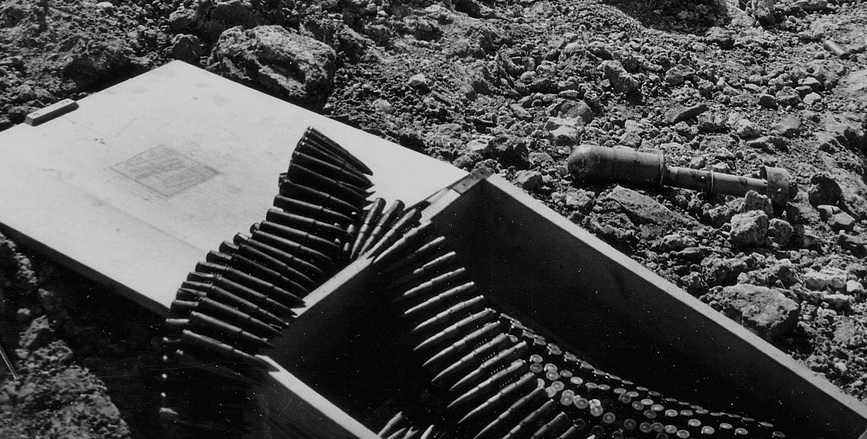




How to Claim for Defective Military Equipment
If You’ve Been Injured Due to Negligence
If you have been injured due to defective equipment while serving in the armed forces, you may want to find out more about how to claim for defective military equipment.
Your safety depends on the functionality of the equipment issued to you, which could range from heavy machinery, handling firearms or using protective gear. The MOD has a duty of care to ensure that all the issued equipment is tested, maintained and fit for purpose.
So, if you’ve been hurt in a minor accident or suffered a more severe injury while serving in the army, navy or air force, you may be entitled to claim compensation to help you get back on the road to recovery.
Generally, you cannot claim for injuries sustained during combat. But you may be eligible to claim if injured during training, exercises or deployment not in a combat situation.
Therefore, it’s advisable to speak to an experienced solicitor with regard to injuries resulting from defective or faulty military equipment. Taking prompt and informed action can help provide for you and your family going forward.
At Jefferies Claims, we partner with lawyers who work on a ‘No Win, No Fee’ basis who can assess whether your case is valid and if so, help you claim compensation.
Common Examples of Defective Military Equipment
Defective military equipment may range from:
- Faulty firearms or ammunition
- Body armour or helmets that fail to meet safety standards
- Malfunctioning radios or communication devices
- Inadequate gas masks
- Poorly maintained vehicles or aircraft
- Faulty parachutes
- Defective explosive devices
Defects such as these may lead to serious injuries. The MOD has a duty of care to ensure all issued equipment is tested, maintained, and fit for purpose.
If You’ve Been Injured: How to Claim For Defective Military Equipment
If you’ve suffered due to defective equipment here’s a step-by-step guide on what to do next:
- Medical Attention and Documenting Your Injuries
Your priority should always be your health. So it’s important to seek immediate medical attention and make sure your injury is recorded in your medical file. This will serve as crucial evidence later in your claim.
- Report the Defective Equipment
Notify your chain of command and log the incident as soon as possible. Describe the nature of the defect, how it caused your injury, and when and where it occurred. If possible, gather photographs, witness statements, and equipment serial numbers to help substantiate your claim.
- Keep Records
Maintain a record of all relevant documents:
- Medical reports
- Emails or communications about the incident
- Reports from commanding officers
- Evidence of time off work or inability to serve
These records will form the backbone of your legal case. It is important to know, that in most cases, the claim will be made against the MOD (Ministry of Defence). They have a legal duty of care regarding the health and safety for all personnel. If this duty is breached which caused harm, you may be eligible to file a claim.
Your solicitor will initiate the claim and negotiate on your behalf for the best compensation based on the extent of your injury and its impact on your career and life.
How Long Do You Have to Make a Claim?
There is generally a three-year time limit to make a personal injury claim starting from the date of the injury or when you first became aware of the defective equipment causing the injury. However, it’s best to start your claim as soon as possible when evidence is easier to gather, and your legal team can act quickly.
Potential Compensation for Defective Military Equipment Injuries
Compensation will vary depending on the severity of your injury and its effect on your daily life and career. Your claim may include:
- General damages for pain, suffering, and loss of amenity
- Special damages for loss of earnings, travel expenses, rehabilitation costs, or costs for medical treatment
In some cases, you may also be entitled to compensation under the Armed Forces Compensation Scheme (AFCS) in addition to a civil claim. You can apply for both, but civil claims generally result in more comprehensive pay-outs, particularly if your injuries are long-term or career-ending. Your lawyer can advise you further on this.
Possible Injuries Using Defective Military Equipment
Using defective military equipment may result in a range of injuries, including:
- Traumatic brain injury
- Spinal cord damage
- Burns
- Hearing loss due to faulty ear protection
- Loss of limbs from explosive devices
- Mental health impact, such as PTSD
Will Making a Claim Affect Your Military Career?
One common concern is whether making a claim will affect your career in the military. However, you have a legal right to claim compensation, and retaliation for doing so is unlawful.
The MOD is required to uphold the rights of service members, and your solicitor will ensure your legal protections are enforced. Our legal team can advise you on ow to proceed discreetly and professionally.
Contact Us About a ‘No Win, No Fee’ Claim
Defective military equipment claims can be legally complex. Speak to an experienced solicitor who understands the unique challenges faced by service personnel and who can help gather the necessary evidence, ensure your rights are upheld, and maximise your compensation. We partner with highly experienced lawyers who offers a ‘No Win, No Fee’ service, meaning you won’t pay any legal fees unless your claim is successful. Our dedicated team provides clear, compassionate guidance every step of the way.
Whether you’ve been injured by faulty body armour, weapons, or other unsafe equipment, Jefferies Claims can help you assess your legal options and move forward confidently and discreetly.
Take the next step, contact our team on 0333 358 3034. Alternatively, complete our online contact form to arrange a telephone consultation – it’s free, confidential and there’s no obligation.
